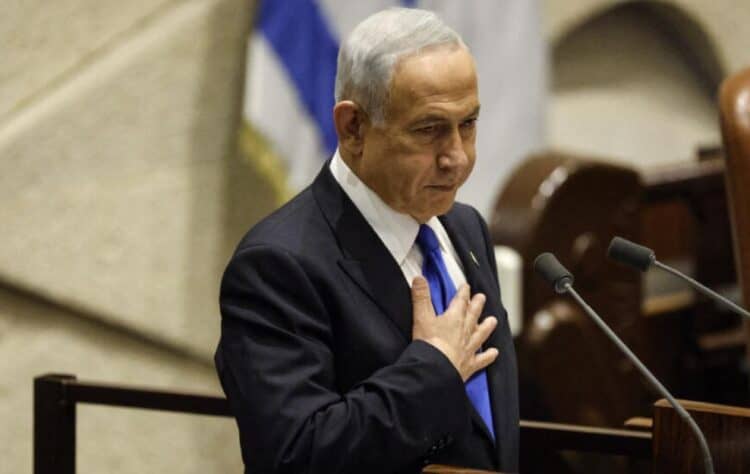Israel is facing widespread condemnation after blocking all humanitarian aid into Gaza.
Benjamin Netanyahu’s office announced the blockade yesterday, blaming Hamas for rejecting a US-backed proposal to extend phase one of the ceasefire. The plan, allegedly put forward by US special envoy Steve Witkoff, aimed to continue hostage releases while postponing a full Israeli withdrawal from Gaza.
“With the end of phase one of the hostage deal, and in light of Hamas’s refusal to accept the Witkoff outline for continuing talks – to which Israel agreed – prime minister Netanyahu has decided that, as of this morning, all entry of goods and supplies into the Gaza Strip will cease,” the statement read. “Israel will not allow a ceasefire without the release of our hostages. If Hamas continues its refusal, there will be further consequences.”
Shortly after, Netanyahu’s spokesperson Omer Dostri confirmed: “No trucks entered Gaza this morning, nor will they at this stage.”
International backlash
Egypt and Qatar swiftly condemned the decision, calling it a breach of the ceasefire agreement.
Egypt’s foreign ministry accused Israel of using starvation as “a weapon against the Palestinian people.” Meanwhile, Qatar’s foreign ministry slammed the blockade as a “blatant violation of the ceasefire agreement” and rejected the “use of food as a weapon of war.”
UN secretary general António Guterres demanded that “humanitarian aid flow back into Gaza immediately.” The UN’s humanitarian chief, Tom Fletcher, described Israel’s move as “alarming.”
Hamas also hit back, calling the blockade “cheap blackmail” and a “coup” against the ceasefire deal.
Food prices soar in Gaza
Reports suggest the blockade has sent food prices skyrocketing in Gaza.
Gaza’s health ministry has urged residents to report merchants overcharging for food. Meanwhile, local businessman Tamer al-Burai told Reuters that with shops now empty, the price of a sack of flour has jumped from 40 shekels (£8.50) to 100 shekels (£21). Prices for fuel, cooking oil, and vegetables have also soared.
“It is catastrophic, and things might get worse if the ceasefire isn’t resumed or authorities don’t act against greedy merchants,” al-Burai warned.
Gaza government media chief Salama Marouf tried to reassure the public, insisting there is enough food in the markets for at least two weeks. The economy ministry has launched efforts to prevent price hikes.
Ceasefire agreement in doubt
The first phase of the ceasefire, which began on 19 January and expired on Saturday, allowed for increased aid deliveries. An average of 600 trucks entered Gaza daily, with this figure meant to continue throughout all three ceasefire phases.
However, Hamas claims Israel only allowed in less than half the agreed fuel supplies. The group also accuses Israel of blocking the entry of live animals and animal feed, crucial for food security.
As the crisis deepens, pressure is mounting on Israel to lift the blockade and resume aid deliveries.
You may also like: Watch: Trevor Phillips compares Donald Trump to Vito Corleone in scathing TV rant







